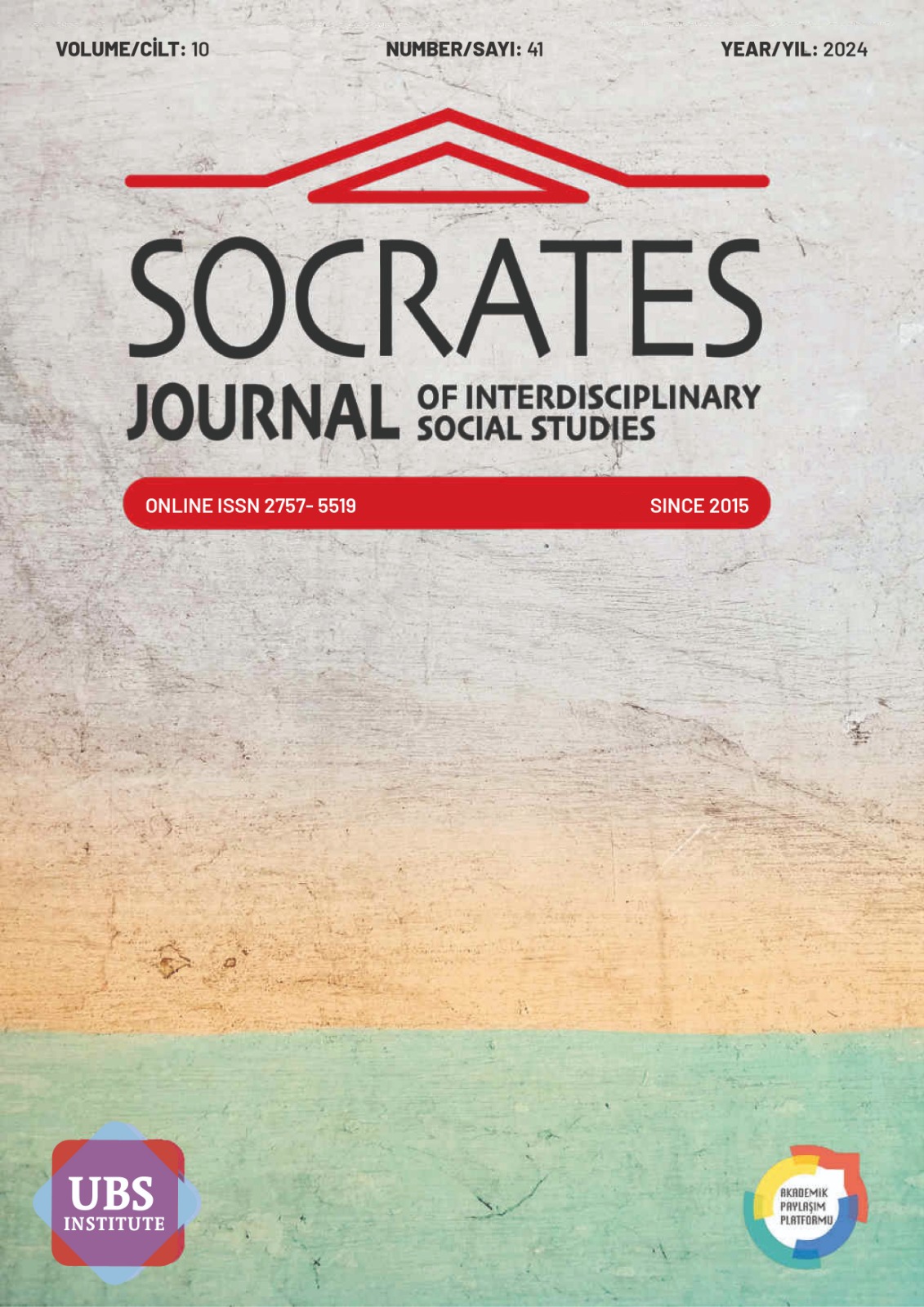ANALYZİNG ADVERTİSİNG AND ARTİFİCİAL INTELLİGENCE PRACTİCES THROUGH SOCİOLOGİCAL METHODS: “SEPHORA AD FİLMS”
TÜRKÇE
DOI:
https://doi.org/10.5281/zenodo.11411964Keywords:
Digitalization, algorithm, artificial intelligence, adversitingAbstract
The most important practices of software and informatics, which are open to both social and technical use, are centered around artificial intelligence. Although its predictions date back to the early 20th century, the times when the use of artificial intelligence has become more intense refer to the last 20 years.. Artificial intelligence has changed the forms of communication and has also become the number one actor in the advertising and marketing fields. In this regard, it would be appropriate and appropriate to say that the manufacturer's marketing and sales tactics on the target audience have begun to evolve in a different direction with artificial intelligence. The purpose of the study is to elucidate the use of artificial intelligence-generated content in advertising practices, both its positive and negative aspects. In this context, advertisements prepared by artificial intelligence were examined using sociological analysis methods in the study. Accordingly, in the study, three advertisement films created by artificial intelligence as part of Sephora Italy's awareness campaign for the International Day for the Elimination of Violence against Women were analyzed. The study concludes that artificial intelligence tends to portray women who have experienced violence as guilty and positions itself as a technology that operates based on readily available data and global ideological agendas.
Key words: Digitalization, algorithm, artificial intelligence, advertising
References
* Ahmed M. Elkhatat ,H. E., Almeer, S. (2023). Evaluating the efficacy of AI content detection tools in differentiating between human and AI-generated text, International Journal for Educational Integrity, 19:17, https://doi.org/10.1007/s40979-023-00140-5
* Argan, M., Dinç, H., Kaya, S., & Tokay Argan, M. (2023). Artificial ıntelligence (aı) in advertising: understanding and schematizing the * behaviors of social media users. ADCAIJ: Advances in Distributed Computing and Artificial Intelligence Journal, 11(3), 331–348. https://doi.org/10.14201/adcaij.28331
* Aydın, Ö., Karaarslan, E (2023). Academic Platform Journal of Engineering and Smart Systems (APJESS) 11(3), p. 118-134.
Coşkun, Fatma ve Gülleroğlu, H.D. (2021). Yapay zekânın tarih içindeki gelişimi ve eğitimde kullanılması, Ankara Üniversitesi Eğitim Bilimleri Fakültesi, Cilt:54 Sayı: 3, s.947-966.
* El Ka’bi, A. (2023). Proposed artificial intelligence algorithm and deep learning techniques for development of higher education, International Journal of Intelligent Networks, , Volume:4, p. 68-73.
* Mekni, M. (2021). An Artificial Intelligence Based Virtual Assistant Using Conversational Agents, Journal of Software Engineering and Applications, 14, p. 455-473.
* Menzies, J., Saber, B., Hasan,R., Mensah, P.K. (2024). Artificial intelligence for international business: Its use, challenges, and suggestions for future research and practices, Thunderbird International Businnes Review, Volume:66, Issue: 2, p.125-222.
* Mıtchell, M. (2024). Debates on the nature of artificial general intelligence, Science, Vol 383, Issue 6689
Nah, S., Luo, J., Joo, J. (2024). Mapping scholarship on algorithmic bias: conceptualization, empirical results, and ethical concerns, International Journal of Communication, 18, p. 548–569
* Shuroug A. Alowais, Sahar S. Alghamdi, Nada Alsuhebany, Tariq Alqahtani, Abdulrahman I. Alshaya, Sumaya N. Almohareb, Atheer Aldairem, Mohammed Alrashed, Khalid Bin Saleh, Hisham A. Badreldin, Majed S. Al Yami, Shmeylan Al Harbi & Abdulkareem M. Albekairy. (2023). Revolutionizing healthcare: the role of artificial intelligence in clinical practices, BMC Medical Education, 23/689.
* Solove, D.J. (2024). Artificial Intelligence and Privacy, 77 Florıda Law Revıew (forthcoming January 2025), https://papers.ssrn.com/sol3/papers.cfm?abstract_id=4713111
* Sujata, J., Aniket, D., & Mahasingh, M. (2019). Artificial intelligence tools for enhancing customer experience. International Journal of Recent Technology and Engineering, 8(2), 700-706.
Downloads
Published
How to Cite
Issue
Section
License
Copyright (c) 2024 Socrates Journal of Interdisciplinary Social Studies

This work is licensed under a Creative Commons Attribution 4.0 International License.


